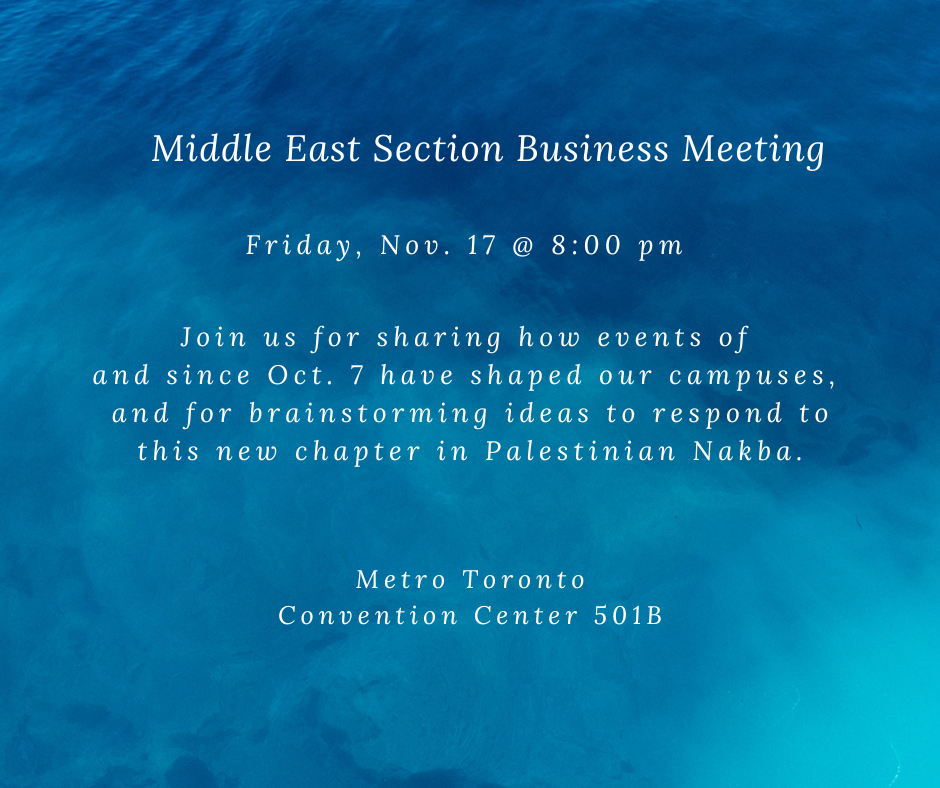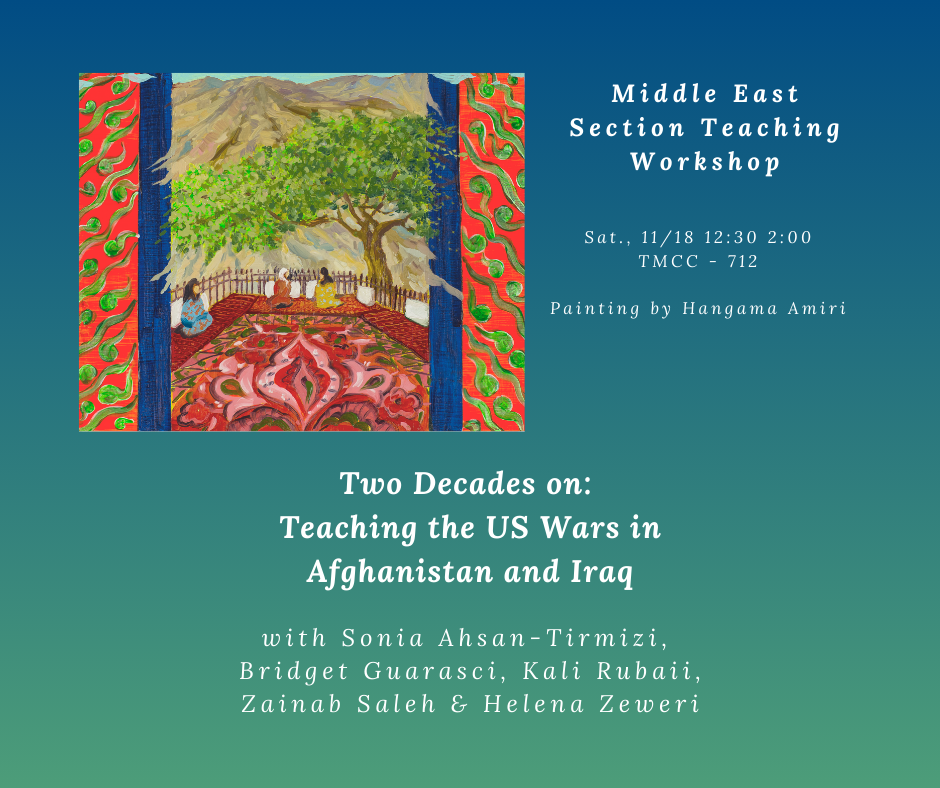Please bring the following resolution to the floor at your section meeting, and join us at the business meeting on Friday November 17, 6:15-7:30 pm at TMCC (Hall F) to call for the AAA to adopt it.
Resolution on Palestine
Whereas the people of Gaza have been subjected to widespread and indiscriminate bombardment and assault since October 7, 2023;
Whereas Israeli government and military leaders have expressed genocidal intent in Gaza and have engaged in direct and public incitement to commit genocide;
Whereas as of November 12, 2023, over 11,000 Palestinians have been killed, including over 5,000 children, and over 28,000 have been injured by Israeli attacks, while over 3,000 Palestinians remain missing under the rubble;
Whereas the Israeli bombardment of Gaza has destroyed over 185 educational facilities, including dozens of UNRWA schools and the three major universities in Gaza: the Islamic University, Al Azhar University, and Al-Aqsa University;
Whereas more than 80 Palestinian university faculty and staff and 2000 university students have been killed by the bombardment;
Whereas army and settler violence has also increased against Palestinians in the West Bank, resulting in over 170 deaths, including the deaths of 45 children, and displacement of entire communities;
Whereas academic freedom and personal safety is in dire risk for Palestinian and Jewish Israeli critics, students and faculty alike, in Israeli universities.
Whereas in institutions of higher education across North America there is increasing repression of speech and advocacy on Palestine, and Palestinian, Muslim, Arab and allied students and faculty are under threat;
Whereas the AAA’s resolution for the boycott of complicit Israeli institutions passed by the overwhelming majority of voting members in July 2023;
Whereas the AAA has made a statement calling for an end to violence and acknowledging anthropological literature that has addressed structural and everyday violence imposed by the Israeli government;
We call upon AAA to:
- Stand in solidarity with Palestinian university students, faculty and staff.
- Issue a strong statement of condemnation of Israel’s ongoing illegal assault on and siege of Gaza and join the international call for an immediate ceasefire.
- Condemn the ongoing violence against and displacement of Palestinians across the Occupied Palestinian Territory and within Israel.
- Issue a letter to presidents of universities, research centers, and other academic institutions across North America calling on university administrations to provide explicit support and protection of Palestinian students, faculty, and staff and their allies against harassment, anti-Palestinian racism, Islamophobia, demonization and silencing in line with the principles of academic freedom.
- Issue a strong statement condemning the violation of the academic freedom of Palestinian and critical faculty, students and staff at Israeli universities, currently facing harassment and threats of violence, disciplinary hearings, and termination and expulsion for exercising their academic freedom.
Also posted on AnthroBoycott.


